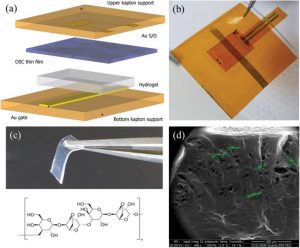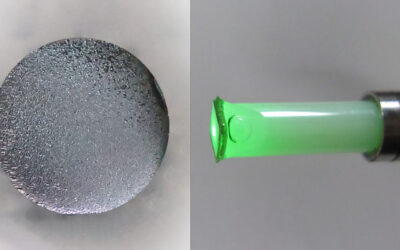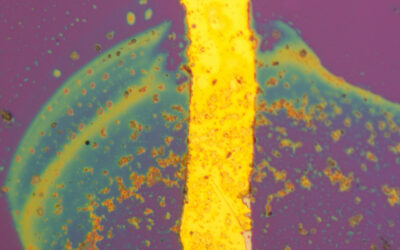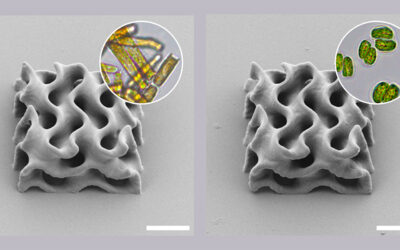Flexible pressure-responsive devices have a great impact in fields such as wearable electronics and bioelectronics. As a fundamental device component, organic field-effect transistors (OFETs) are of great interest due to their inherent advantages, including their fabrication via low-cost solution processing techniques and usage of cost-effective plastic substrates.
When using solution processing of organic semiconductors, often the presence of water forms a problem for a fully functional final device.

a) Schematic diagram and b) a photograph of the flexible OFET. c) Photograph of the self‐standing agarose film (1.5 wt%) and chemical structure of agarose. d) SEM image of a cross‐section of the 1.5 wt% agarose film.
Dr. Marta Mas-Torrent and her team have just published the latest results from their laboratory at the Institute of Materials Science in Barcelona (ICMAB), Spain. Her work presents a proof-of-concept of a new transduction mechanism that can be exploited to fabricate pressure-responsive organic devices.
It was demonstrated that due to the dipolar nature of water, water molecules trapped in the organic semiconductors can give rise to OFETs that respond to pressure. Considering this, a transistor employing a hydrogel (i.e., agarose) as electrolyte dielectric was fabricated.
Such a hydrogel provides a constant aqueous environment as well as low operation voltage. The electrical characteristics of this device respond to the application of low pressures (in the range of several hundreds Pa to 9 kPa), revealing a high reproducibility and sensitivity and, importantly, operating below 0.5 V.
The fabricated hydrogel-based electrolyte-gate OFET shows a proof-of-concept of a fully flexible and low-power pressure responsive device.
“Our work opens new perspectives for the development of pressure-responsive organic electronic devices operating at low [voltages],” concludes Marta Mas-Torrent.

















